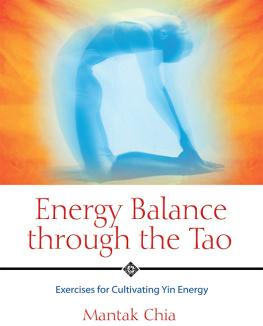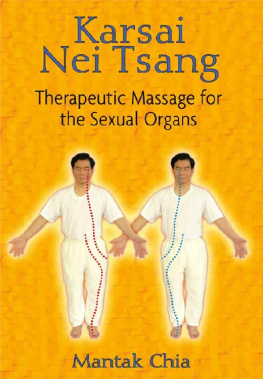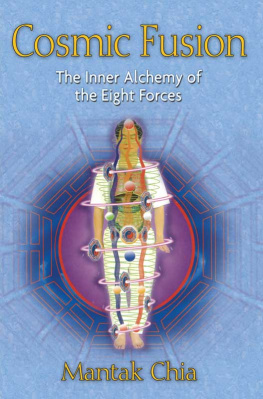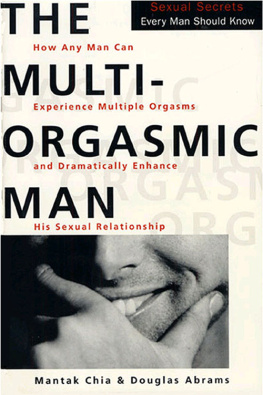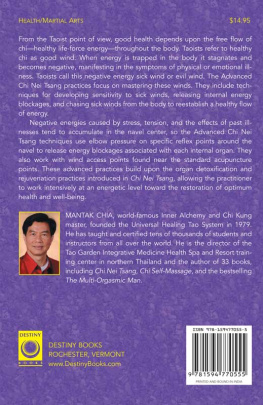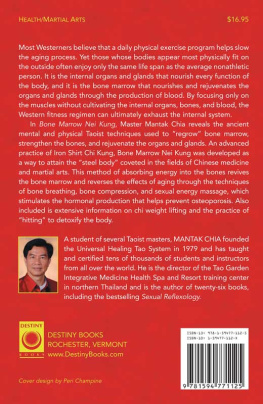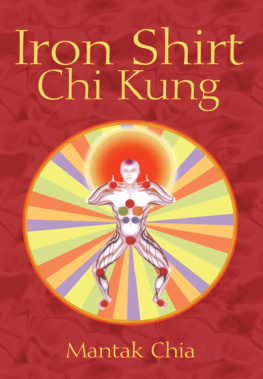Mantak Chia - Tendon Nei Kung
Here you can read online Mantak Chia - Tendon Nei Kung full text of the book (entire story) in english for free. Download pdf and epub, get meaning, cover and reviews about this ebook. year: 2010, publisher: Inner Traditions / Bear & Company, genre: Religion. Description of the work, (preface) as well as reviews are available. Best literature library LitArk.com created for fans of good reading and offers a wide selection of genres:
Romance novel
Science fiction
Adventure
Detective
Science
History
Home and family
Prose
Art
Politics
Computer
Non-fiction
Religion
Business
Children
Humor
Choose a favorite category and find really read worthwhile books. Enjoy immersion in the world of imagination, feel the emotions of the characters or learn something new for yourself, make an fascinating discovery.

- Book:Tendon Nei Kung
- Author:
- Publisher:Inner Traditions / Bear & Company
- Genre:
- Year:2010
- Rating:4 / 5
- Favourites:Add to favourites
- Your mark:
- 80
- 1
- 2
- 3
- 4
- 5
Tendon Nei Kung: summary, description and annotation
We offer to read an annotation, description, summary or preface (depends on what the author of the book "Tendon Nei Kung" wrote himself). If you haven't found the necessary information about the book — write in the comments, we will try to find it.
Mantak Chia: author's other books
Who wrote Tendon Nei Kung? Find out the surname, the name of the author of the book and a list of all author's works by series.
Tendon Nei Kung — read online for free the complete book (whole text) full work
Below is the text of the book, divided by pages. System saving the place of the last page read, allows you to conveniently read the book "Tendon Nei Kung" online for free, without having to search again every time where you left off. Put a bookmark, and you can go to the page where you finished reading at any time.
Font size:
Interval:
Bookmark:
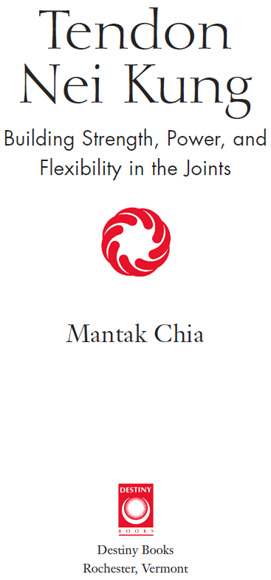
Acknowledgments
We extend our gratitude to the many generations of Taoist masters who have passed on their special lineage, in the form of an unbroken oral transmission, over thousands of years. We wish to especially thank Taoist Master Yi Eng for his patience and openness in transmitting the formulas of Taoist Inner Alchemy. We also wish to thank the thousands of unknown men and women of the Chinese healing arts who developed many of the methods and ideas presented in this book.
We offer our eternal gratitude to our parents and teachers for their many gifts to us. Remembering them brings joy and satisfaction to our continued efforts in presenting the Universal Tao System. As always, their contribution has been crucial in presenting the concepts and techniques of the Universal Tao.
Thanks to Juan Li for the use of his beautiful and visionary paintings and drawings, illustrating the Taoist esoteric practices.
We thank the many contributors essential to this books final form: The editorial and production staff at Inner Traditions/Destiny Books for their efforts to clarify the text and produce a handsome new edition of the book and Nancy Ringer for her line edit of the new edition.
We wish to thank the following people for their assistance in producing the previous editions of this book: Pierre Morton for his writing and editorial contributions; Udon for his illustrations, book layout, and cover design; Dennis Huntington and Jean Chilton for their editorial and proofreading assistance; and Jettaya Phaobtong and Saumya Comer for their editorial contributions to the first revised edition of the book.
A special thank you goes to our Thai Production Team: Raruen Keawpadung, Computer Graphics; Saysunee Yongyod, Photographer; Udon Jandee, Illustrator; and Saniem Chaisarn, Production Designer.
Finally, we wish to thank our certified instructors, students, and sponsors throughout the world for their ongoing contributions to the system and for preserving the vitality of the Universal Tao practices.
Putting Tendon Nei Kung into Practice
The practices described in this book have been used successfully for thousands of years by Taoists trained by personal instruction. Readers should not undertake these practices without receiving personal transmission and training from a certified instructor of the Universal Tao, since some of these practices, if done improperly, may cause injury or result in health problems. This book is intended to supplement individual training by the Universal Tao System and to serve as a reference guide for these practices. Anyone who undertakes these practices on the basis of this book alone, does so entirely at his or her own risk.
The meditations, practices, and techniques described herein are not intended to be used as an alternative or substitute for professional medical treatment and care. If any readers are suffering from illnesses based on mental or emotional disorders, an appropriate professional health care practitioner or therapist should be consulted. Such problems should be corrected before training begins.
Neither the Universal Tao nor its staff and instructors can be responsible for the consequences of any practice or misuse of the information contained in this book. If the reader undertakes any exercise without strictly following the instructions, notes, and warnings, the responsibility must lie solely with the reader.
This book does not attempt to give any medical diagnosis, treatment, prescription, or remedial recommendation whatsoever, in relation to any human disease, ailment, suffering, or physical condition.
Words on the Tao
It has been said that the Tao that can be told is not the eternal Tao. This phrase suggests that the Tao (God, universe, life) is so unfathomable that to think we can understand all of this wonderful life is simply an unrealistic notion (fig. 1.1). Besides, is it not the great unknown that keeps us going, that keeps us so fascinated and intrigued with this multifaceted, infinitely fantastic thing we call life? In the West, there is a tendency to try to intellectualize every possible aspect of life and strive to give a logical explanation for it. The truth of the matter is that if we spend all of our time thinking about life, we will never move into the feeling of it, and we will miss lifes greatest vehicle for joy and happiness.
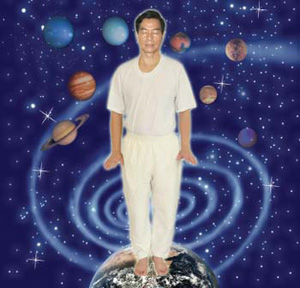
Fig. 1.1. Limitless Tao
We should not let the realization that there will always be an aspect of mystery in life, that there will always be something that we cannot understand, create any notions of insecurity or fear within us. Rather, we should learn to embrace this mystery and allow its unfathomable greatness to inspire us. In this way, all sacred knowledge will unfold within us in due course (fig. 1.2). We do know that the wordtao means the way or, more to the point, the natural way. Contrary to what seems to be todays popular belief, Taoists believe that human beings natural state is to be joyful, healthy, and virtuous. Therefore, in order to lead a fulfilling existence we need only to get and stay in touch with our inner being. In other words, we must be at one with the Tao. This, of course, is easier said than done. However, it is still a great relief to tap into the powerful truth and simplicity of the Tao. So wherever you go and whatever path you follow, remember the Taoist philosophy: you are inherently good, made out of pure joy, love, and infinite potential.
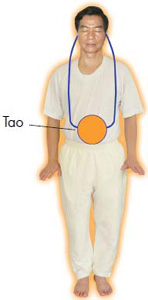
Fig. 1.2. Limitless Tao within
BENEFITS OF BEING AWARE OF THE TAO
With todays artificial lifestyle we inevitably encounter experiences that pull and push us out of our primal states of being. From childhood we encounter numerous confusing experiences and are taught a variety of behaviors that contradict our natural and happy state. The results of these experiences are that we are eventually led away from our inner being and ultimately forget how to live without struggle. Running here and there chasing our tails, we forget what it is we really want. Caught up in the vicious circle of cause and effect, we forget who we really are. Many religions supply us with a multitude of rules and regulations in an effort to help stop this cycle, but in many cases they only add more frustration to our lives and contribute to the problem, not the solution.
Being aware of the Tao entails simply quieting our monkey mind, or intellect, and going inside. The intellect, of course, serves a good purpose, but most present-day cultures place so much emphasis on developing the intellect in early youth that it soon dominates our other thinking or choice-making mechanismour heart or instinct. When we are in our natural state our choices are always made based on what our heart tells us. The heart is an unfailing choice-making mechanism, but most of us dont recognize its fantastic intelligence, and because of our upbringing we spend our lives referring to our intellect for information about all levels of life. Never taking the time to still our intellect and go inside results in this hyperactive, overstimulated, and ultimately out-of-control mind that is responsible for much of our unhappiness. The worst part of the problem is that people dont realize what the problem is!
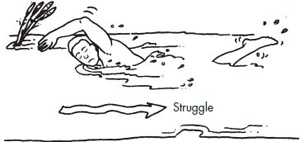
Font size:
Interval:
Bookmark:
Similar books «Tendon Nei Kung»
Look at similar books to Tendon Nei Kung. We have selected literature similar in name and meaning in the hope of providing readers with more options to find new, interesting, not yet read works.
Discussion, reviews of the book Tendon Nei Kung and just readers' own opinions. Leave your comments, write what you think about the work, its meaning or the main characters. Specify what exactly you liked and what you didn't like, and why you think so.

